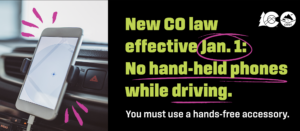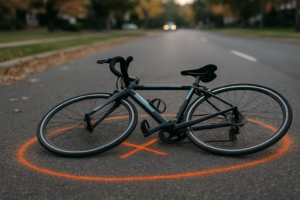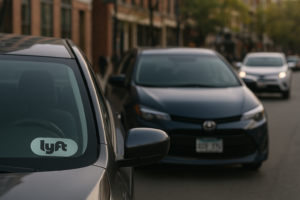The Legal Risks When Technology Fails in Adverse Driving Conditions
Modern vehicles are increasingly equipped with advanced weather-related technology, such as automatic braking systems, traction control, and lane-keeping assistance designed to enhance safety during hazardous conditions. However, when these systems fail, the consequences can be severe, leading to accidents, injuries, and complex liability disputes.
Were You or Someone You Know Affected
How Weather-Related Vehicle Systems Impact Accident Liability
1. The Role of Weather Tech in Vehicle Safety
Weather-related vehicle systems are designed to assist drivers by improving traction, visibility, and handling in adverse conditions. However, when these technologies malfunction, drivers may be left vulnerable to accidents.
- Anti-lock braking systems (ABS) failing to engage properly on icy roads
- Adaptive cruise control not adjusting for slippery conditions
- Automatic windshield defrosting systems malfunctioning and reducing visibility
2. Liability in Weather Tech Failures
When an accident occurs due to a malfunctioning weather-related system, determining liability can be challenging. The responsibility may fall on multiple parties, including manufacturers, software developers, and drivers.
- Manufacturers may be liable for defects in weather-related technology
- Software developers may face legal action for coding errors that cause malfunctions
- Drivers may still bear some responsibility for failing to adjust driving behavior despite tech warnings
3. How Malfunctioning Systems Affect Insurance Claims
Insurance companies consider multiple factors when assessing accidents involving faulty weather tech. While these systems can provide data supporting a claim, they can also lead to disputes regarding fault and compensation.
- Vehicle data logs showing system failures as contributing factors
- Disputes over whether human error or technology malfunction was the primary cause
- Policy exclusions related to automated weather safety features
4. Legal Considerations and Recalls
If a weather-related system failure leads to an accident, legal actions may arise against manufacturers and service providers. Regulatory agencies also track trends in system failures to issue recalls or enforce stricter safety standards.
- Class-action lawsuits against automakers for widespread tech failures
- Regulatory investigations into the reliability of weather-related safety systems
- Legal precedents shaping future liability cases in vehicle automation failures
Case Studies Weather Tech Failures in Real Accidents
- Tesla Autopilot & Snow Conditions: A Tesla owner reported an autopilot failure in heavy snow, leading to a collision due to the system’s inability to detect road markings.
- Defective ABS Recall: A major automaker recalled thousands of vehicles after multiple reports of anti-lock brakes failing on wet roads.
- Adaptive Cruise Control Failure: A driver sued a manufacturer when their adaptive cruise control failed to detect black ice, resulting in a rear-end collision.
Best Practices for Drivers Using Weather-Related Tech
Do’s:
- Stay Informed About Recalls – Regularly check for software updates and manufacturer recalls related to safety features.
- Understand System Limitations – Know what your vehicle’s weather tech can and cannot handle in extreme conditions.
- Monitor Vehicle Performance – Report any malfunctions to dealerships or manufacturers immediately.
- Have Backup Safety Measures – Rely on traditional driving precautions in addition to automated systems.
Don’ts:
- Do Not Rely Solely on Automation – Weather tech is designed to assist, not replace, driver judgment.
- Avoid Ignoring Warning Signs – If a system shows errors or behaves inconsistently, take action immediately.
- Do Not Disable Safety Features Without Cause – Disabling key safety features can void warranties and impact liability.
- Do Not Assume Full Insurance Coverage – Verify that your policy includes coverage for tech-related failures.
(FAQ) Frequently Asked Questions
Can I sue a manufacturer if my weather-related system fails?
Yes, if a proven defect caused an accident, you may have grounds for a product liability lawsuit.
How do insurance companies assess liability when weather tech fails?
Insurers analyze vehicle data logs, driver reports, and system performance to determine fault.
What should I do if my weather-related vehicle system malfunctions?
Report the issue to the manufacturer, seek necessary repairs, and document any problems in case of future claims.
Can software updates fix weather-related tech issues?
In some cases, over-the-air updates can resolve issues, but hardware defects may require physical repairs or recalls.
Contact Ramos Law
Weather-related vehicle technology plays a vital role in enhancing road safety, but failures in these systems can lead to severe consequences. Drivers must remain vigilant, stay updated on recalls, and understand the limitations of their vehicle’s tech. When an accident occurs due to a malfunction, seeking legal counsel can help navigate liability claims and secure appropriate compensation.



